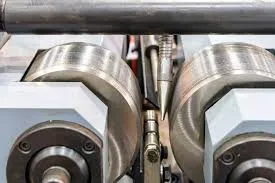
-
 Afrikaans
Afrikaans -
 Albanian
Albanian -
 Amharic
Amharic -
 Arabic
Arabic -
 Armenian
Armenian -
 Azerbaijani
Azerbaijani -
 Basque
Basque -
 Belarusian
Belarusian -
 Bengali
Bengali -
 Bosnian
Bosnian -
 Bulgarian
Bulgarian -
 Catalan
Catalan -
 Cebuano
Cebuano -
 Corsican
Corsican -
 Croatian
Croatian -
 Czech
Czech -
 Danish
Danish -
 Dutch
Dutch -
 English
English -
 Esperanto
Esperanto -
 Estonian
Estonian -
 Finnish
Finnish -
 French
French -
 Frisian
Frisian -
 Galician
Galician -
 Georgian
Georgian -
 German
German -
 Greek
Greek -
 Gujarati
Gujarati -
 Haitian Creole
Haitian Creole -
 hausa
hausa -
 hawaiian
hawaiian -
 Hebrew
Hebrew -
 Hindi
Hindi -
 Miao
Miao -
 Hungarian
Hungarian -
 Icelandic
Icelandic -
 igbo
igbo -
 Indonesian
Indonesian -
 irish
irish -
 Italian
Italian -
 Japanese
Japanese -
 Javanese
Javanese -
 Kannada
Kannada -
 kazakh
kazakh -
 Khmer
Khmer -
 Rwandese
Rwandese -
 Korean
Korean -
 Kurdish
Kurdish -
 Kyrgyz
Kyrgyz -
 Lao
Lao -
 Latin
Latin -
 Latvian
Latvian -
 Lithuanian
Lithuanian -
 Luxembourgish
Luxembourgish -
 Macedonian
Macedonian -
 Malgashi
Malgashi -
 Malay
Malay -
 Malayalam
Malayalam -
 Maltese
Maltese -
 Maori
Maori -
 Marathi
Marathi -
 Mongolian
Mongolian -
 Myanmar
Myanmar -
 Nepali
Nepali -
 Norwegian
Norwegian -
 Norwegian
Norwegian -
 Occitan
Occitan -
 Pashto
Pashto -
 Persian
Persian -
 Polish
Polish -
 Portuguese
Portuguese -
 Punjabi
Punjabi -
 Romanian
Romanian -
 Russian
Russian -
 Samoan
Samoan -
 Scottish Gaelic
Scottish Gaelic -
 Serbian
Serbian -
 Sesotho
Sesotho -
 Shona
Shona -
 Sindhi
Sindhi -
 Sinhala
Sinhala -
 Slovak
Slovak -
 Slovenian
Slovenian -
 Somali
Somali -
 Spanish
Spanish -
 Sundanese
Sundanese -
 Swahili
Swahili -
 Swedish
Swedish -
 Tagalog
Tagalog -
 Tajik
Tajik -
 Tamil
Tamil -
 Tatar
Tatar -
 Telugu
Telugu -
 Thai
Thai -
 Turkish
Turkish -
 Turkmen
Turkmen -
 Ukrainian
Ukrainian -
 Urdu
Urdu -
 Uighur
Uighur -
 Uzbek
Uzbek -
 Vietnamese
Vietnamese -
 Welsh
Welsh -
 Bantu
Bantu -
 Yiddish
Yiddish -
 Yoruba
Yoruba -
 Zulu
Zulu
types of thread rolling product
Types of Thread Rolling Products An Overview
Thread rolling is a cold forming process where the shape of the material is altered to create threads, typically on cylindrical parts. This method is highly efficient and is widely used across various industries including automotive, aerospace, and manufacturing. The resulting products from thread rolling are essential in the production of fasteners, screws, and other threaded components. In this article, we will explore the different types of thread rolling products and their applications.
1. Threaded Fasteners
The most common type of thread rolling product is threaded fasteners. This category includes bolts, screws, and nuts, which are vital components in any assembly process. Threaded fasteners created through the thread rolling process exhibit superior strength and durability compared to those produced by traditional machining methods. The cold working process enhances their mechanical properties, making them less susceptible to wear and tear. These fasteners are found in everything from household items to complex machinery.
Studs and rods are another significant product category generated through thread rolling. These components are often used in applications that require secure connections between parts. Studs are fully threaded, allowing for a reliable grip in various assembly contexts. Rods, on the other hand, can feature one or both ends threaded to accommodate different applications. Their versatility makes them popular in automotive and construction sectors, where they serve various functions such as clamps, connectors, or anchors.
3. Custom Threaded Components
Many manufacturers require specialized components tailored to specific applications. Custom threaded products can be created through thread rolling to meet unique specifications. This includes unique thread profiles, dimensions, and finishes. Industries often require custom parts to ensure that their products meet regulatory standards or fit seamlessly with existing components. The ability to quickly and efficiently produce custom threaded items is a major advantage of thread rolling.
types of thread rolling product

4. Large Diameter Components
While traditional machining methods can be limited by the size of the components, thread rolling can accommodate larger diameters more effectively. This capability is especially important in industries where large-scale assemblies are common, such as in the oil and gas sector. Large diameter bolts or fasteners can be produced using thread rolling techniques, resulting in strong, robust components that can withstand significant tension and pressure.
5. Precision Components
Precision is critical in many applications, particularly in the aerospace and medical industries. Thread rolling allows for the production of components with high accuracy and tolerances. The process minimizes the risk of defects typically associated with cutting methods, ensuring that components meet stringent specifications. Precision threaded products are often utilized in applications that demand reliability and safety, making thread rolling an indispensable process in these industries.
Advantages of Thread Rolling Products
The advantages of using thread rolling products extend beyond strength and precision. The thread rolling process is also cost-effective, as it generates less waste and requires less energy compared to traditional machining. Additionally, because the process does not involve the removal of material, the production rates are typically higher, allowing for greater efficiency. The ability to create intricate thread patterns and shapes further enhances the versatility of thread rolling, making it a preferred choice for manufacturers around the globe.
Conclusion
In conclusion, the diverse range of thread rolling products plays a crucial role in various industries. From standard fasteners to custom products and large diameter components, thread rolling offers a range of solutions that meet the demands of modern manufacturing. The advantages of this process, including strength, precision, and efficiency, make it an essential technique for producing threaded components. As technology advances, the applications of thread rolling will further expand, continuing to impact the way industries design and manufacture their products.
